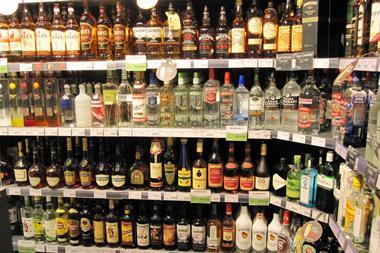- More from navigation items
- Home
- Advice
- Your Business
- Your Stories
- Products
- Stores
- Awards
- Category Management
 Cereals: quality staples drive momentum in the breakfast aisleThis content is provided by Weetabix
Cereals: quality staples drive momentum in the breakfast aisleThis content is provided by Weetabix No- and low-alcohol: drive sales and profits in beer's fastest growing segmentThis content is provided by Asahi
No- and low-alcohol: drive sales and profits in beer's fastest growing segmentThis content is provided by Asahi Soft drinks: driving sales this winterPaid for and in partnership with Coca-Cola Europacific Partners
Soft drinks: driving sales this winterPaid for and in partnership with Coca-Cola Europacific Partners
Minimum pricing to impact over half of Scottish alcohol sales

At least 50% of alcohol sold in Scotland doesn’t meet the impending minimum price legislation, according to the latest data from Nielsen.
ALREADY HAVE A REGISTERED USER ACCOUNT? PLEASE LOG IN HERE
To read the full story join the ConvenienceStore.co.uk community today!
Registration is quick and easy and provides access to:
- Unlimited ConvenienceStore.co.uk articles
- Our great range of newsletters
- Content you’ve saved for later via the ‘my library’ feature
And much more…

















